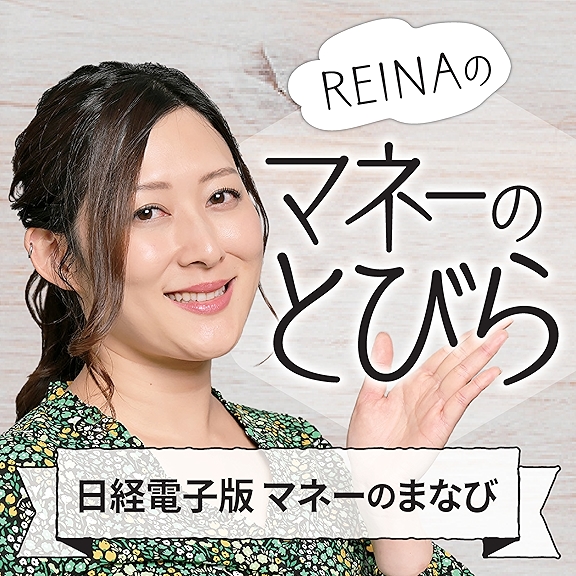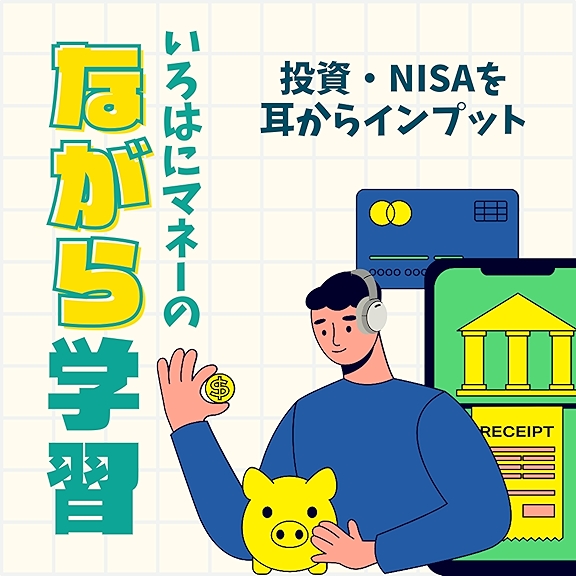
Bob Lachance is a former professional hockey player who dived right into real estate investing with no experience. He took a leap of faith, by asking an investor if they needed help and from there, his story began. He shares a valuable lesson from a mistake he made along the way that cost him $150,000 in one day. Bob is a good example of why you keep pushing forward, taking every mistake as a lesson, and staying open-minded to discover what you will be good at.
Today, Bob shares his transition story from becoming a professional hockey player to a real estate business owner and how you can grow your business using virtual assistants and getting your time back.
Episode Link:
---
Transcript
Before we jump into the episode, here's a quick disclaimer about our content. The Remote Real Estate Investor podcast is for informational purposes only, and is not intended as investment advice. The views, opinions and strategies of both the hosts and the guests are their own and should not be considered as guidance from Roofstock. Make sure to always run your own numbers, make your own independent decisions and seek investment advice from licensed professionals.
Michael:
What's going on everyone? Welcome to another episode of the Remote Real Estate Investor. I'm Michael Albaum, and today I'm joined by Bob Lachance, who is the CEO and founder of REVA GLOBAL, and Bob's gonna be talking to us today about what it is a VA can do for your business, and why you might want to think about actually hiring one. So let's get into it.
Bob, what's going on, man, thank you so much for taking the time coming on with me, I appreciate you.
Bob:
Michael, thanks for having me. Appreciate it!
Michael:
Oh my god, so a pleasure. So I know a little bit about your background. We were chatting here before we hit record. But for anyone who is not familiar with you, if you can give us the quick and dirty who you are, where you come from, and what is it that you do in real estate today?
Bob:
Sounds good to second rundown and, uh, you and I, we you and I know each other a bit. So you and I have a lot in common actually, I started this thing might not be in common. But I started you know, I played freshman hockey for eight years. Prior to that went to Boston University for four years, and then played near my last four years actually playing hockey, I played in Europe.
That was a pretty good run and then as soon as it started coming to an end, I had my first child and my wife was staying at home with him. So I figured you know what, I don't have really too much either to accomplish in my, in my planning career. So you know, I know a lot of people go through this, where they're looking at becoming a real estate investor, from one industry to the next and I know it's a very challenging time for a lot of people. So I know exactly what you went through. This was me back in 2004, to where you had to make an adjustment and really, you know, jump in, in a different industry, that's what I did. So I jumped into real estate investing back in 2004, start investing, my first deal was a fix and flip drove around neighborhoods, I know you have a lot of a lot of newer investors. So what you teach is farming areas, I did the same thing. So I drove around neighborhoods, I looked at properties that were dilapidated overgrown grass roof that needs to be done the whole nine yards. So I would call on literally I would go home, I would skip trace every single individual. So I write down a list of properties and a lot of what you teach, and write down a list of properties and go on to 401.com, which was a skip Tracing Service back then, you know, you have white pages, you have a lot of different services now and I literally would go home after I'd skip chairs, and I call them and say, Hey, I saw your property located at 123 Main Street. I'm looking to purchase properties. I'm a real estate investor in your area. Do you have anything for sale as your property for sale. So I got a good hit on one of them. It was actually listed property. So I had to go through the region and I knew nothing about real estate investing just so everybody's clear 2004 and went from the hockey locker room to a business owner which back in the day, man, I didn't have coaching programs that I knew about back then. So for me personally, I was kind of it was nerve racking. I had a little money put away but not a ton. So I made an offer on this property as listed at 185. I think I made an offer at 135 and they accepted it and I'm like, oh no, right. Just like any new investor, you're like, what do I do?
Yeah, what do I do? I do contractors. I didn't have bank financing setup, right? I you know, at some money put away but I didn't have you know, it was 135 plus another $30,000 of rehab. I didn't have that sitting in my bank account, right. So I went out to what's called a rare reminder, I found a found some contractors called a bunch of mortgage brokers at the time and I'm finding money, funds with contractors fix and flip the property made 32 grand which was awesome, right? I'm all fired up and all pumped. However, I looked in the mirror and I'm like, I don't even know what marketing was. I mean, I drove around literally, you know, I drove around forever. I got lucky in the property. I had no systems processes nothing. It's all me and went to Home Depot probably, I don't know, 10 times a day because I again, nothing. I met that and then fast forward to the next Monday after I closed I joined a real estate investor Association and I met this dude, which was ended up being my partner for 10 years. His name was Pat Precourt great dude, awesome guy, I went up to him and I said, hey, Pat, I know you are a real estate investor in Connecticut and everyone points to you as being the best individual short sale. So I'm like, I'm looking for someone to work with. I'm not looking for any money. I'm not looking for like a nine to five job. I'm looking to join a team. Are you hiring? He said yes. I'm actually looking for an acquisition person and he goes in specific, I'm looking for a door knocker. Now, if anyone if anyone has ever done door knocking, door knocking absolutely sucks. I just have to throw it out there.
However, you know, you know, my mindset was I said, the first thing I do understand is I know I have to I have to learn from ground up and I'm willing to do the dirty work to learn the business. So remember, I already flipped the property, but I didn't really learn anything, I just kind of managed it. I was mish, mosh and made money, so now I told Pat on my car, I will door knock, he gave me a list of pre foreclosure individuals, those are individuals that stopped paying their mortgage, and a script. So without any training at the beginning, I just got thrown to the wolves and I, from 10am to 3pm, every Monday through Friday, Monday through Friday for a year. So that's how I cut my teeth on understanding how to acquire property sell and then from that I graduated to negotiating with banks and we've done well over 1000 short sale transactions through the years again, this back in 2004, you know, when the crisis hit 2000-6-7-8, done a bunch of those fast forward started a couple of real estate education programs, which we're kind of having a good time about. One of them is called fortunate millers, which ended up being one of the top ones in the in the nation and then I left there. Remember, when I left there a couple about a year and a half ago, let's just say 2014. I know I'm jumping around 2014, I started my first virtual assistant company, out of the need of working with 1000s and 1000s and 1000s of students, they were looking at it saying listen, I know I want to make the jump from a regular job to real estate investing, but they didn't have enough time. So a lot of more working part time with, you know, another job and trying to get into real estate investing. So as a perfect segue to start that business, because you know, probably 99% of all of the students that I've worked with, in my life, needed a virtual assistant. So fast forward today, I have a real estate investment company, we just flipped 160 properties last year, different stuff. We're doing creative stuff and then this year, we're probably going to do about to a little over 200 If I have to estimate right now, while running a virtual assistant company. So I do a bunch of different stuff.
Michael:
That's awesome, I'm just curious, what's the typical tenure of a hockey professional hockey player?
Bob:
It is about I have to I have to check the staff for probably four years maybe so you doubled it. So I double it, I double so I made I made it a pretty long time and I went to play four years here in the US and four years in Europe, which is pretty cool. So I got a little different experiences.
Michael:
Oh, that's awesome. Okay, that was my own my own thoughts coming into play here. So okay, so you run now, you've done a lot of different things in the real estate space and now you're running a virtual assistant company specifically for that target, specifically real estate investors or virtual assistants for any type of book.
Bob:
So any type of real estate professionals, so that would be mortgage companies, that would be you know, wholesalers rehabbers, short sale investors, you name it, we have a lot of property managers, real estate agents, brokers. So that runs the gamut on a lot of different real estate investing. We also have a branch that we started in the medical space as well, that has medical virtual assistants that does you know, insurance verifications prior authorizations, but that's a whole different podcast.
Michael:
Okay, right on. So I'm curious to know…
Bob:
I personally focus in on I handle and manage to focus in on real estate, since that's my specialty.
Michael:
That's your space. Okay, cool. Well, I'm really curious about you know, when people are just getting started, or maybe they're already a seasoned investor, how do they know if a virtual assistant is right for them or when to make that leap or what kind of benefits they would see from using a virtual assistant as opposed to doing it all themselves?
Bob:
Great question. The simple answer is when you get when you get very, very overwhelmed, when you start looking at your calendar, you look at your phone, like, oh, what do I do next, and you have all these tasks. You know, I like to say, if you do $10 an hour tasks, you're going to have a $10 an hour bank account, that's typically when you start looking at that stuff and it's really important to you know, start looking at your calendar every day and see what tasks would should you get off your plate first, you know, for me, personally, I look at the way real estate investing is right now and in you start looking at all the miniscule tax tasks that we need, we need a social media presence we need you know, that needs to be that's very important. So that's part of branding what you can outsource and get off your plate. Next is obviously lead generation. You know, whether it's text messaging cold calling, taking in seller leads writing offers, right? You start looking at exactly how that goes in your business and those are the things that you have to look at because think about this. If I if I want to go on a boat ride with you, I want to go see you I don't know if Mike if you have a boat on are you live in a great area? So let's say you have a boat.
Michael Albaum:
Okay yeah, let's say that.
Bob:
Let's say that or would you want to play golf, right or I want to play golf with you. You're in my area and Michael, let's play golf and if you're not in the office, who's making money for you, if you're working by yourself, right? Nobody, nobody's making those direct mail or nobody's making those cold calls that are needed to drive in seller leads. No one's running your soul. Social media, no one's text message, no one's doing those things that consistently need to happen, right for you to run a successful business, you have to be literally sitting in that seat all day long or guess what your, your, you know, you're not going to answer on the phone, if you and I want to go on vacation, right or you want to, you know, go on vacation with their spouse or your friends, it doesn't matter, who's gonna be answering those calls for you, as well. Very, very important to have somebody sitting in that seat that you can replace and put someone in their perfect virtual system.
Michael:
Okay and what about for like, folks that are using investing, as a very, as a very traditional business model, the long term buy and hold investor, they're making that transition. Now their portfolio has grown to such a point where they're transitioning maybe from a full time job into real estate investing full time, but they're not flipping, they're not wholesaling. I mean, is there a space for them to take advantage of virtual assistants as well?
Bob:
Absolutely, you can look at two sides. Again, if it's if they still, if they're still looking to build their portfolio, that's one kind of set of tasks. Then another side is admin tasks, right? On the property management side, it all depends if they manage properties themselves. So if you want to look at both of them on the acquisition side, you know, if they're in an area that is competitive, they're going to need someone to cold call to text message and take calls to answer calls, maybe to make MLS offers, right? Because you can look at it and every area is different. So if I'm investing in Toledo, let's say you can have, you could have an algorithm or you could have a what's the word I'm looking for, you could have, you could run your numbers on how you your numbers, go and buy and hold right? Cash flow, what the cost of your money is, etc., different in Toledo than it is in San Francisco than it is in San Diego than it is in Connecticut. So you can have your virtual assistant comb through the MLS, if you have access to and make MLS offers as well to find and acquire properties on top of course, you know, taking in direct mail calls, taking in PPC calls, outbound dialing, text messaging, things like that. So that's on that storefront, because if we want to build our portfolio, we need properties that fit whatever kind of box that we want, right? Maybe it is an area that's more appreciation over cash flow. I don't know everyone's different these days, you know, because some people want to put more down, right as a as a deposit, whereas some people want least amount, but get an area that has more cash flow, right? It all depends. On the other side of it, if you could pause me because I'm from Connecticut, sometimes when I get talking, I go pretty well.
Michael:
This is great, man. This is awesome…
Bob:
So, on the property management side of they can do anything from you know, taking in seller calls, I'll give you a perfect example. Today, we have a number of properties that we own and we get calls in from tenants that just want to vent, right? Well my lease that shows that you're going to find me all the apply new appliances every time something happens bla bla bla bla, now as a an owner of houses that beats you down. So if you can actually outsource that to a virtual assistant, the first line of defense, so now they say, hey, let me walk you through the lease that you signed and when they walk you through the lease that you signed, that'll take an hour of your day and if you have I mean, this is one individual now if you have, you know, 10 properties 15-20-30. That's just one little task, you know, you could do other stuff like turning on turning on utilities or getting utilities changed over, you know, talk if you have a property manager, if you want to deal with the tenants, and also the owners of the properties as well. So you could go through a laundry list, you get a leasing, lease renewals, we have a ton of property management, clients actually do a mix of different things.
Michael:
That's awesome and what about kind of on the other end of that, or the opposite side of that coin for like life tasks that folks are doing because of real estate investors, you know, grocery shopping, scheduling, all that kind of stuff that doesn't actually have to do with real estate, but that stuff is all time consuming, and doesn't free you up to then go invest more. So our virtual assistants a good fit for those types of tasks as well.
Bob:
Yeah, we have clients that use them as executive assistants as well, right to help with travel, right. There's little, there's other little niche industries as well as real estate investing, you got the financial industry, right. You know, you have to call to get more customers. So we have some clients that are actually sold that home solar companies because the upside of getting one solar client is huge. So they do a lot outbound dial in and say hey, and they have a whole solar pitch on top of that. So there's a lot of different tasks with calendar management to set up travel to things like that, that worked very, very well. We have, we have a client that has who I can't remember how many I think they're up to 10 Vas to have a flooring company that do different types of they do a lot of billing, invoicing and things like that. So those are really, really niche tasks that you know, if you look at whatever your business is that you can outsource.
Michael:
Okay, okay, cool, because I mean, it's been something an idea that I've been flirting with personally, the problem that I have is it's really difficult for me to identify, okay, what's something that I have to do versus what's something that I could outsource to someone else? Do you have any good tips or tricks, or exercises that someone can go through to kind of sort and filter through? Okay, this is a me task, or this is a someone else task?
Bob:
Absolutely, what I would do is I would take three months for this or three weeks for this exercise, very simple. Okay, what you do is you have a, you have a piece of paper, and then you write down all of the things that you do in three weeks, start with one week, of course, but then go to the next week, next week, then…
Michael:
Including, like, brush my teeth and go into the bathroom. No, no, I can leave. You could
Bob:
if you want, that's okay. That's gonna be task. That's right, that's a huge source that yeah, oh, and then what you do is you take a line of paper, you put non producing tasks and producing tasks, and all the non or non-producing tasks, you're gonna put on one side, and those are typically the stuff that you could outsource, you know, as a real estate investor, what I look at, I look at as you know, the, the non-producing tasks for me is sitting on the phone all day long to call cold leads. So what I mean by that is, if you get if you download a list to whatever, list provider you use, right, Michael, and then you get them skip traced and if I'm the first person who's calling them all day long, right, that's a non-producing task. That's what you should do, too, for a virtual assistant to do get that off your plate, because then you could be working on all of the purchasing tasks, whether it's raising private money, whether it's sitting down with a bank, or sitting down with agents sitting down with other investors, right? Maybe you're going to if you're a buy and hold investor and you want to buy properties, you're better off, you know, having your virtual assistant, Google all of the investors in your area, and then calling them saying, Hey, you want to have lunch? I'm a buyer. I'm a buyer. I'm a buyer, right? That's just a little idea that we do in our office that works very well.
Michael:
That is a great idea. I never thought about that. All right, cool and all of this, I mean, it just sounds expensive. But what's like the realistic cost? Is there, is there such a thing as like a generic cost or can we put $1 per hour cost on it or does it really depend on the industry and the task and all that sort of thing?
Bob:
You know, we've tried every different model, we just do part time and full time, 20 hours a week and 40 hours a week, and we keep it a standard $10.60 an hour, you know, you start looking at what minimum wages and a lot of these areas, you know that in California, I'm in Connecticut, it seems to go up every day, and I cannot find a four year college educated individual my area for $10.60 an hour and all of our virtual assistants in the Philippines are college educated, you know, they've been in the industry, they're very, very seasoned. So it's just separates a lot of what's going on here in the United States to other countries.
Michael:
Okay, I love it and what's the startup kind of ramp up time for someone once you decide to start working with a virtual assistant to get them really producing and doing the things that that we're asking them to do?
Bob:
Very good question. So what we do is we actually recruit and train virtual assistants. So if you if you raise your hand, Michael, you say, hey, I want to start with a virtual assistant today to cold call, I don't know. So what we do is on the front end, we do. So we have a sourcing recruiting team in the Philippines and then we have a training team. So they train for about three to four weeks. So once they get through our, our screening process from application to checking out exactly if they have the right systems to their English proficiency and they pass, they have to take a little test and then go on to our training team. So if they pass through training, right, they take another test, then they do predictive indexing, so checks, Disc profile predictive index and so what we do is we check out a little bit of a profile of what they have, and of course, all of their all of their past experience. So now as soon as they get through our training, now we look at every time we have a sale, it's almost like match.com, that gets to our placements team and our placements team looks at the predictive index the disc profiling and matches that particular resume profile with the tasks of what that individual investor wants. So it's like match.com, we match a VA virtual assistant with the individual, as soon as they match up, right? What we do is we put, we give three different individuals to where you Michael could interview, because not everyone might feel that they're compatible. So as soon as it goes to placements, the match.com puts them into three different puts them with three different individuals. At that point, you pick who you feel is most compatible for you and then you go to our operations team, which you also get with at 1060. You also get a what we like to call a client service manager who helps manage the relationship between yourself and the virtual system. We have a lot of clients that come on say hey, you know, Bob, I want to start first with one full time virtual assistant and all of a sudden the VA does fantastic listen, I want to add another one, I want to add another one in the client service manager handles all of that they also handle all the HR and if there's any other questions that you need, they'll help with some training, too. If you want to add in extra training, there's a laundry list of things that the client service manager helps with, too, which is included in in that 1060.
Michael:
Okay, awesome. So it sounds like the kind of ramp up process to actually get started is significant on your end of the of the equation for me as the end user.
Bob:
So to answer your question, it will take about a week.
Michael:
Yeah, okay.
Bob:
Exactly, it will take less than a week. So to answer your question, yeah.
Michael:
Cool and then what have you seen, from your experience, and from your clients experience with how long it takes that the VA to really start producing? Because what I'm asking for is a very specific thing, I need them to do this in a very specific order. So does that take another month? What have you seen in that in that regard?
Bob:
So I would take from zero to 30 days is it's kind of like, you know, if you hire someone in your office, how long does it take for that individual, we just hired a sales manager, as an example, in our office that is in our office, we give him about 30 days to get stepped up and rent. Okay. So, you know, think about this, to learn what kind of system you have, we have to train them on pulling down lists, skip tracing whatever task that we want them to do, because in you know, this, you know, working with working in Roofstock Academy, you know, you have a client's may come in, you have 80% of the individuals that will run a business the same way, but it's the 20% that makes the magic, right? They'll start changing. You're from the Bay Area. I'm from Connecticut. So we will all learn the same program, right? You'll be my coach, I'll learn the same thing that somebody learns from in your backyard, but it's that 20% that I have to change because it's my backyard. I may be a wholesaler, not a rehabber. Yeah, right. I may be a buy and hold investor and not a rehabber. So it's those 20% things. I look at it the same way, that same thing with virtual assistants. So they're gonna have to learn probably about 20%. That's unique to you. You may use a different CRM, you may use a different skip tracer, it, but that's a small little part of it.
Michael:
Okay and that makes total sense and Bob, how do I communicate with my virtual assistant? Am I texting them on my on WhatsApp and my email, am I calling them, how does that work or is it really up to me and the VA to figure that out for ourselves or is there kind of a standard communication tool.
Bob:
That's up to you, that's up to you. Yeah. So that's up to you. So I have so I have learned how many bas are used now on our own business. We have cold callers, text messengers, data scrapers, skip trace, we have a bunch of them. So I have, I have Viber RingCentral. Those are my two main things that I use. So it's Viber is just like a WhatsApp.
Michael:
Yeah. So same, I used to get made fun of so much for telling some of that I still use Viber. Like, dude, welcome in 2005 and whatever, man, it works, well, like, get off my back.
Bob:
I like it, it's my phone I got I'm like, yeah, it's very, very nice. Yeah and it works is that we also have a Slack channel tool that we use. So okay, so whatever the client wants to use, we use it. So we'll train on how to use that specific tool for them, so it's very simple is up and running right away.
Michael:
Okay, awesome. Man, this is so cool. I've got I've got to do some more exploring. What would you say, are some of like the big mistakes that people make when they're just getting started so that other people or listeners can avoid that they can learn from others?
Bob:
Yeah, one of the biggest ones is, you know, we have some clients that come in and say, Listen, I just want my virtual assistant to run my business and I'm like, listen, it's an assistant want a virtual assistant run my business, too. Yeah, it's a virtual assistant, it's not a, it's not your business owner, get a partner if you want someone to run your business, so that that one's very, very important. And set proper expectations. I think that's important to where, you know, virtual assistants are great at lead generation, I hear people say, Well, I want my VA to go from A to Z and close the deal and I'm like, that is not realistic, because who's going to go meet the seller who's going to who's going to actually walk them through the process in the end, right? It's very, very important, because they're big about this, Michael Jordan, it's your real estate business, right? They are buying you, you get the lead in and if you have a team that is there, then they're buying your company and your Acquisition Manager or rep, right. So the virtual assistants are fantastic at doing tasks like lead generation, they could write up contracts, they could do transaction coordinator, they could do all that. But getting the actual deal closed, it's ours. It's my job as a business owner to do that, right. So I think those two things, as I see are very, very challenging pr some misconceptions out there because they may have heard a podcast and you're like, oh, you know, I'd be exactly go A to Z. Please call me and let me know that business 2004 I've tried everything and it hasn't worked for me. Maybe I'm doing something wrong, but I'm open to hear so anyone ever heard of that? Please give me a call, give me my number.
Michael:
That's great, that's great and we I mean, you kind of touched on it already, but I'm curious. If someone I mean, how I'm thinking about this for myself is just kind of having a VA take care a lot of the life stuff that I've got the scheduling that sort of thing. Where have you seen, I guess, in thinking about it from that frame, what are tasks that are not a great fit for a VA.
Bob:
Like I said, closing the transaction, right being your closer your head closer, you should either, you know, have a trained individual in house being your head closer, I would say that is first and foremost. So look at that. And that's really important. Everything else that you could do over a phone. Because think about this, your head closer is an individual that has a personality trait that is in 100% sales. Now, I don't know if it is in your area to find, you know, a killer salesperson. But sometimes it's difficult in different parts of the area in the United States, right. So outsourcing that to a different country, I found that that is the most difficult part to do, if you want to have a virtual assistant do that. So I would put that on the tippity top and it's really, really important that people know that because, you know, think about this, there's a lot of listeners that are either working part time or full time, right, that are listening to this podcast that want a VA to do A to Z, you are going to have to help with the closing side of it. If you want. If you want to be successful in real estate investing, and you want to get out of the rat race over here, you will need to focus in on that niche for you personally, you know, we have sales training, I pay for sales training every single, every single Tuesday and Thursday, we have our team and our on sales training costs 1000 bucks a month, right on just that one little niche alone. So think about that, and you know, within your business, so.
Michael:
Yeah, that makes total sense. But what if we shift the focus instead of like thinking about it from a sales and funnel, like a business perspective, if I'm having a VA help schedule, doctor's appointments and shopping, that sort of thing? You mentioned it before anything that can be done over a phone is a totally appropriate thing to have a VA do?
Bob:
100%! So if you want help with it depends how many doctor appointments you have, right? It depends. You have to, you have to make sure it also you have to definitely make sure and this is this is what's really, really important, right? You have different companies out there that have different packages, like if you want someone for only a couple hours a week, go to Upwork like that is a place that you could find a VA yourself, right? It's very inexpensive. If you want specific tasks done for your real estate business, I would say go to a company like mine, right? Because it's really written for that's why I've cut I've tried the 10 hour, I've tried the five hour I've tried, you know, the hourly, it's very difficult for any company like mine that has a whole system and process set up at the beginning with the management of your VA in the back end to do, you know, five hours or 10 hours. That's why we specifically cut it down from 20 to 40 hours and it just makes sense. So if you're a bit so if your question is, if you want someone five to 10 hours, I would 100% go to a company like Upwork and they're the best for that particular kind of roles. If you're looking for that, does that make sense?
Michael:
It makes total sense, it makes total sense and something that I'm constantly struggling with about getting a VA for myself is like sensitivity, the sensitivity of information, bank accounts, credit card numbers, social security numbers, I mean, so much of what we do in the real estate space requires that kind of stuff, is those are those types of phone calls appropriate to have a VA do and what kind of I guess accountability is there in the VA space in general.
Bob:
This is the way I always put it. I'm not willing to get my credit card anybody like and this is just this is just, it's really, really important, right? I'm not gonna go out there. I know, if I have a credit limit of X amount of money. I'm not going to give my credit card anybody, right? I think it's really, really important that's sensitive. Like for me personally, I've never had to get into a situation where I gave my virtual assistant, my credit card, and it was sent over, right sent over somewhere, what the best thing to do is saying, hey, have my virtual assistant send me the link that needs that sensitive information, right. Some people you know, I've heard, you know, not my company, but I've heard probably the same thing you had, well, they took my information. I'm like, well, you know, you should never give somebody that type of information because that's our you know, that's information for us. So the best way to offset what you're asking because that's a fantastic question is have them do all of that research and send you that one link that's gonna take you two minutes anyway to put your information we've probably ever pre populated on our computer anyway, right? This is what credits gonna say.
Michael:
Yeah, it's a click. Yeah, yep.
Bob:
So just in that's the best way I can I can answer that because it's really important. It's my responsibility to protect my own data as well. So I guess that's the best way to explain.
Michael:
Yeah, no, that makes a ton of sense. That makes no sense and great answer. Well, I liked it anyway. I think it's a great answer. Bob, this has been this has been so much fun, man. What's the best way for people to get in touch with you, learn more about your company take advantage of the services you offer, how can they do that?
Bob:
Absolutely. You can find me on Facebook, check out our website, which is https://revaglobal.com/ , R E V A global.com, like I said, catch me on Facebook. My email address is bob@revaglobal.com , you could get right to me on our website, if you want to sign up for a strategy session, there's a button right on our website, click on it, you could talk to our admissions team to see if it's the right fit for you. We're open you can have any questions you want. That's the way I always say you know what you, for me personally, it's important to talk to individuals, like myself, like yourself that actually work with virtual assistants and also are open to answering any questions. So whatever kind of question you have, for our team can help. That's fantastic, if we're right fit, that'd be fantastic, work for it.
Michael:
Love it. Well, thanks again, for coming on and sharing your wisdom and knowledge. I really appreciate it and I'm sure we'll be chatting soon.
Bob:
Awesome, Michael. Thanks for having me.
Michael:
You got to take care, appreciate it. Okay, everyone, that was our episode, a big thank you to Bob for coming on and sharing all his wisdom and frankly, answering just a lot of the questions that I've had about VAs super, super, super, super interesting stuff. So I'm definitely going to be checking that out to see if we can free up some of my time to be put to higher and better use. If you'd liked the episode, or frankly, even if you didn't like the episode we'd love to get a rating and review from you, wherever it is listen to your podcast, and we look forward to seeing on the next one. Happy investing…




















